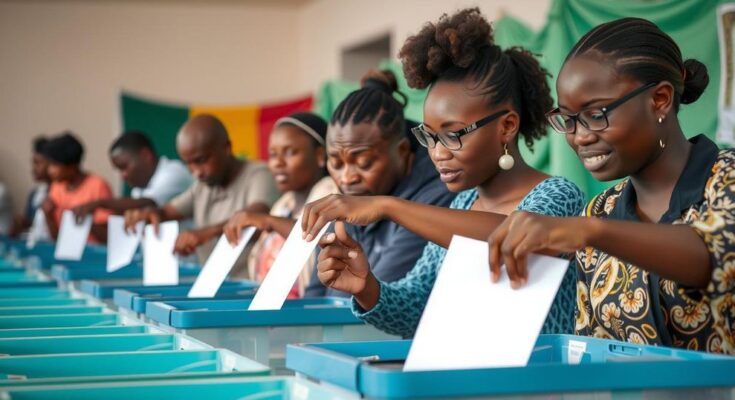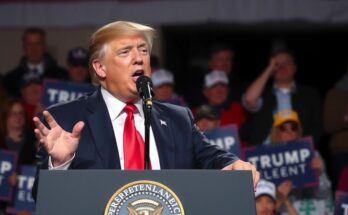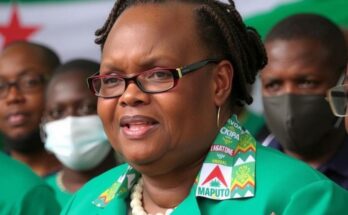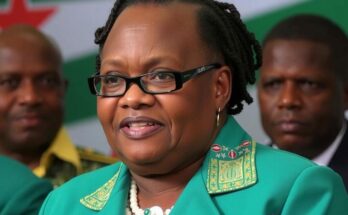Ghana is conducting its general elections amid economic turmoil, with key contenders being Vice President Mahamudu Bawumia and former President John Mahama. The elections will assess the nation’s democratic resilience, with significant voter turnout anticipated despite past economic challenges. Both candidates focus on transforming the economy and addressing critical issues such as illegal gold mining and job creation. Polling opens from 7:00 AM to 5:00 PM GMT, with results expected shortly thereafter.
Ghana has commenced its general elections, with polls opening at 7:00 AM GMT, set against the backdrop of an economic crisis that casts a shadow over its democratic future. This election is critical for assessing Ghana’s political stability, particularly in a region often plagued by coups and political unrest. The voting process will conclude at 5:00 PM GMT, with preliminary results expected the following day and complete outcomes by Tuesday. The key contenders are Vice President Mahamudu Bawumia from the ruling New Patriotic Party (NPP) and former President John Mahama from the National Democratic Congress (NDC). Both candidates hail from the economically disadvantaged northern part of Ghana, historically less influential in prior elections dominated by southern votes.
As President Nana Akufo-Addo prepares to step down after his constitutionally permissible two terms, the public will also select a new parliament. Approximately 18.8 million voters are eligible in a nation of around 34 million, with typical voter turnout nearing 70 percent. To secure electoral integrity, the government has temporarily closed all land borders from Friday evening until the end of voting. The NPP seeks a third consecutive term, a feat never achieved in Ghana’s political landscape, while grappling with criticisms of the current administration’s economic management.
The economy has emerged as the focal point of this election cycle, following a significant debt crisis, soaring inflation, and an ongoing negotiation for a $3 billion International Monetary Fund (IMF) bailout. Mr. Bawumia, an economist trained in the United Kingdom, has promised digitalization and continued social programs, stating, “I know what I want to do from day one in the presidency. Give me the chance to transform this nation.”
Meanwhile, Mr. Mahama, who previously held presidential office from 2012 to 2017, has pledged to rejuvenate the economy by implementing a “24-hour economy” aimed at job creation and increased production. He has emphasized the need to renegotiate Ghana’s IMF lending program.
The escalation of illegal gold mining, which threatens vital agricultural resources, has featured prominently in the campaign discourse, contrasting with previous promises made by the outgoing president. Additionally, Ghana faces security challenges, particularly from adjacent regions where military coups have occurred.
Ghana, often hailed as a bastion of democratic governance in West Africa, is holding pivotal elections that are being keenly observed both domestically and internationally. This significance arises from a recent history marked by political violence and instability across the region. With a fluctuating economic landscape characterized by high inflation and a debt crisis, voters are tasked with reflecting on their experiences under the current government, thereby testing the resilience of Ghana’s democratic institutions. The election’s outcome not only affects Ghana’s internal politics but also serves as a broader indicator of the health of democracy within West Africa.
In conclusion, the Ghanaian general elections represent a critical juncture for the nation, bringing forth issues of economic management, political stability, and voters’ rights. As Ghana navigates through an economic crisis, the choices made in this election could have far-reaching implications for its democratic integrity and regional stability. The outcome will likely shape the future direction of the country, either reinforcing its position as a model of democracy or challenging the political status quo.
Original Source: www.aljazeera.com




